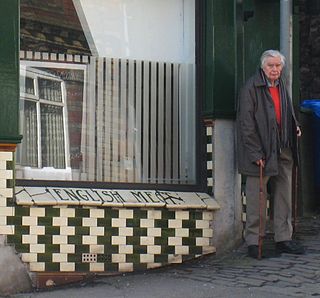A Quote by John Burroughs
When a herd of cattle see a strange object, they are not satisfied till each one has sniffed it; and the horse is cured of his fright at the robe, or the meal-bag, or other object, as soon as he can be induced to smell it. There is a great deal of speculation in the eye of an animal, but very little science.
Related Quotes
The seeing of objects involves many sources of information beyond those meeting the eye when we look at an object. It generally involves knowledge of the object derived from previous experience, and this experience is not limited to vision but may include the other senses: touch, taste, smell, hearing, and perhaps also temperature or pain.
The question so often asked of modern painting, "What is it?", contains more than the dull skepticism of the man who is not going to have the wool pulled over his eyes. It speaks of a fundamental placement in relation to the work, that of a voyager in the world coming upon a strange object. The reader reconstitutes the work by his active participation, by approaching the object, tapping it, shaking it, holding it to his ear to hear the roaring within. It is characteristic of the object that it does not declare itself all at once, in a rush of pleasant naïveté.
A life is such a strange object, at one moment translucent, at another utterly opaque, an object I make with my own hands, an object imposed on me, an object for which the world provides the raw material and then steals it from me again, pulverized by events, scattered, broken, scored yet retaining its unity; how heavy it is and how inconsistent: this contradiction breeds many misunderstandings.
The Federal Government is rendered weak to do wrong, and powerful to do right: for, as soon as it begins to go wrong, it naturally begins to be divided against itself, and the three great wheels of its machinery exhaust their momentum, or wear each other out, in their friction against each other; while, as soon as it begins to go right, all the parts work harmoniously, and exhaust their full strength on the object of their action.
The whole story of the universe is implicit in any part of it. The meditative eye can look through any single object and see, as through a window, the entire cosmos. Make the smell of roast duck in an old kitchen diaphanous and you will have a glimpse of everything, from the spiral nebulae to Mozart's music and the stigmata of St. Francis of Assisi. The artistic problem is to produce diaphanousness in spots, selecting the spots so as to reveal only the most humanly significant of distant vistas behind the near familiar object.


































